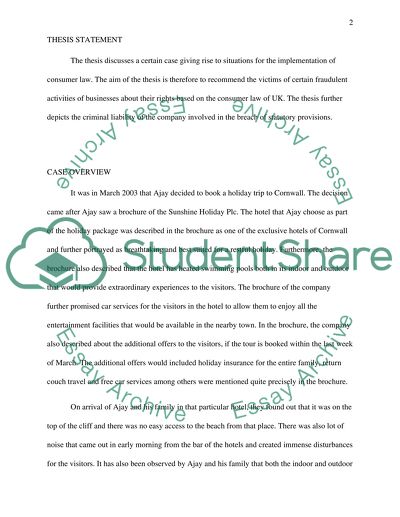Cite this document
(“Consumer Law (UK) Assignment Example | Topics and Well Written Essays - 2500 words”, n.d.)
Retrieved from https://studentshare.org/law/1474321-consumer-law-uk
Retrieved from https://studentshare.org/law/1474321-consumer-law-uk
(Consumer Law (UK) Assignment Example | Topics and Well Written Essays - 2500 Words)
https://studentshare.org/law/1474321-consumer-law-uk.
https://studentshare.org/law/1474321-consumer-law-uk.
“Consumer Law (UK) Assignment Example | Topics and Well Written Essays - 2500 Words”, n.d. https://studentshare.org/law/1474321-consumer-law-uk.


